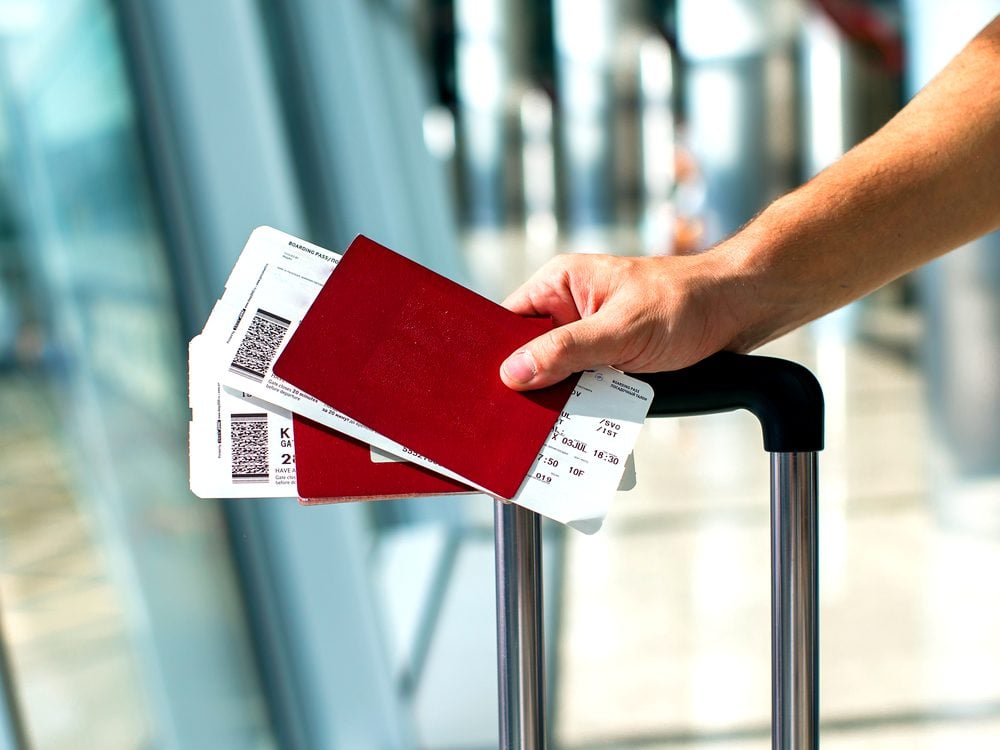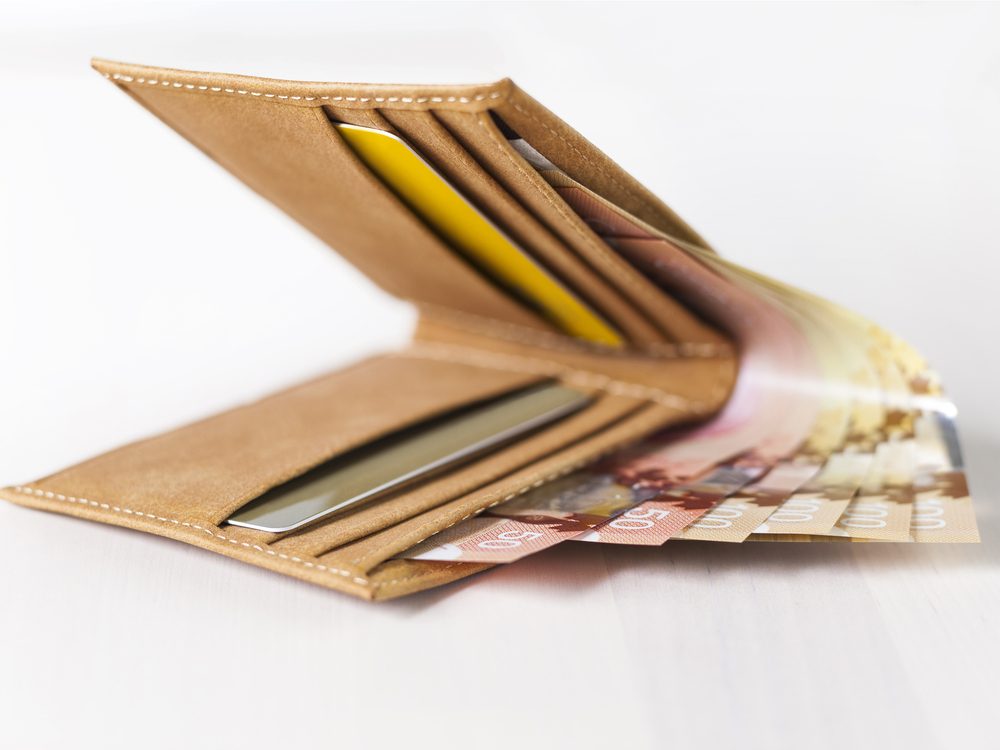
Travel plans
Bragging about your upcoming trip online might seem harmless, but snapping a photo of your boarding pass is a definite don’t. Sure, your followers already know your name—and they might even know your destination—but according to Brian Krebs, author and founder of Krebsonsecurity.com, which specializes in investigative stories on cyber crime and computer security, other personal data is at risk. Your frequent flyer card and passenger name record (PNR) could be jeopardized with a social post. With a little finagling, hackers can access your earned miles, phone number, date of birth, and even passport data. Based on your booking number, criminals can also find out when you leave and return. Knowing that no one is home could entice burglars to break in while you’re away.
Read on for more photos experts advise you should never post on social media.

Money
Posting photos of paycheques, credit cards and wads of cash is just asking for trouble. Aside from being in poor taste, doing so increases the chances of you getting mugged. Also steer clear of photos (or captions) that give away financial information, such as the name of your bank.
Find out the latest online scams (and how to avoid them).

Winning lotto ticket
If you’re lucky enough to snag a winning lottery ticket, be smart enough not to brag. Sharing betting slips isn’t a huge liability for small amounts, but, if they want to put in the effort, criminals can replicate the scannable barcode and steal your winnings.
Here’s what hackers can do with just your cell phone number.

Confidential work emails
It’s a good rule of thumb to keep work off of your social media, especially when it comes to confidential documents. If your company sent an exciting email about a new development or branding idea, the last thing you want to do is let the competition know. Airing complaints—or posting photos of “venting” conversations between you and co-workers—isn’t smart either. In fact, it’s a sure way to get sacked.
Learn the password mistakes that hackers hope you’ll make.

Birth certificate
Posting identifying information on social media is equivalent to losing it—or giving it away. While snapshot of the birth certificate of your new bouncing baby might seem like a heartwarming announcement about a major life change, it can put your little one at risk for identity theft. According to the Identity Theft Resource Center, allowing this government document to fall into the hands of a stranger could do permanent damage. A birth certificate is considered the “bedrock identifying document” and can get you a new social insurance number, passport, health card and driver’s license. Once someone has control of it, proactively preventing fraud is near impossible.
Here’s how to prevent identity theft in five simple steps.

Work that isn’t copyrighted
You might be proud of your writing, but posting a snap of the poem or short story you’ve written before publishing isn’t the best idea—especially if you’re looking to submit to a journal or enter a competition. Someone stealing your award-winning line might lead to a case of he-said, she-said when comes to who originally created the work. Even if you writing only has sentimental value—and isn’t exactly Pulitzer worthy—posting it online makes it easy for people to copy, paste and claim. Keep your wise words to yourself until they’ve been copy written, and then have your fans buy the book instead.
Make sure you never do this when using public Wi-Fi.

Children (who aren’t yours)
Posting photos of children’s smiling faces on social media might seem innocent enough, but it’s best to think twice before submitting photos of minors on social. Be especially careful of adding identifiers such as a child’s name, age and the school they attend. According to the Office of the Privacy Commissioner of Canada, consent for a minor may be obtained from a legal guardian. But keep in mind that there are proposed amendments to Canada’s online privacy laws—make sure you are aware of changing laws regarding data protection and minors.
Next, find out why you need to stop commenting on those viral Facebook memes.